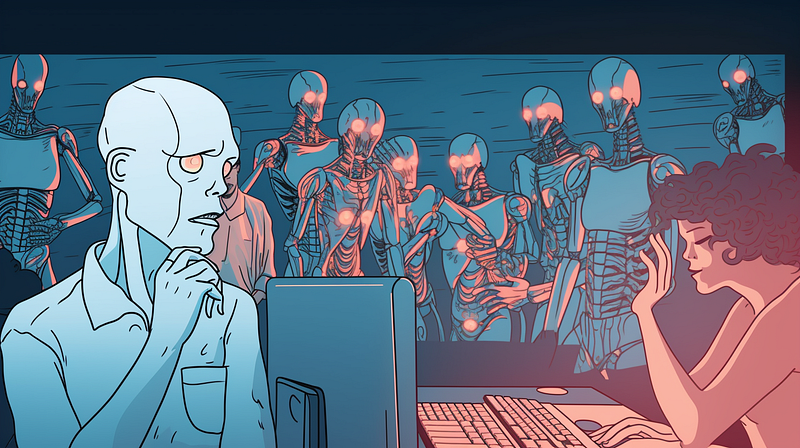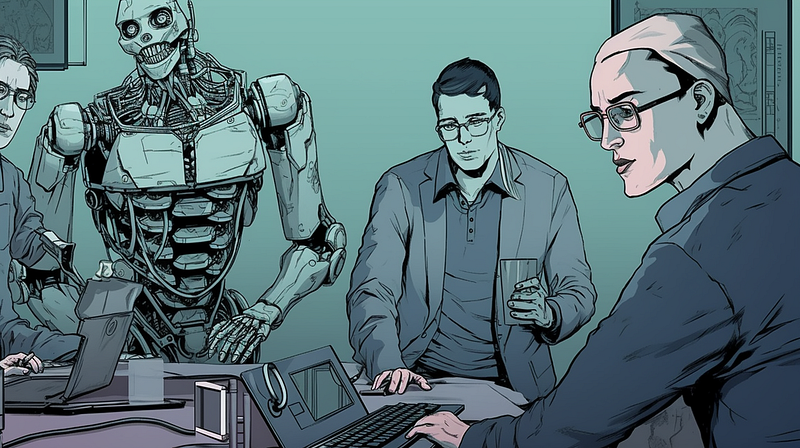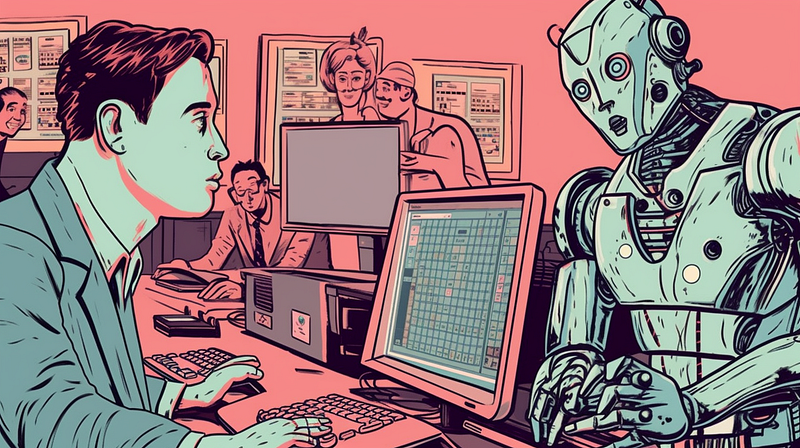AI and Developers: The Future of Work in the Digital Age
Written on
The Evolution of Human vs. AI Developers
As artificial intelligence (AI) continues to advance and permeate various facets of daily life, a heated discussion emerges regarding its effects on employment. This is especially relevant for software developers, who are pivotal in shaping our digital environment. Will AI eventually dominate their roles, or can humans and AI coexist in a new collaborative model? In this piece, we will examine the historical context of labor, the present capabilities of AI, and the possible future scenarios that could shape the software development landscape.
Historical Job Market Transformations

Technological progress has historically led to dramatic shifts in the job market, redefining industries and altering careers. While many technological innovations have made certain professions redundant, they have simultaneously created new opportunities and enhanced living standards.
The Industrial Revolution exemplifies the profound influence of technology on labor. As machinery began to replace manual tasks in textile mills and factories, traditional craftspeople saw a decline in demand. However, these same innovations paved the way for job growth in sectors like manufacturing, logistics, and communication, contributing to increased productivity and economic prosperity.
Similarly, the introduction of the automobile rendered horse-drawn carriages obsolete, leading to the decline of trades such as carriage making and blacksmithing. Yet, the automotive sector generated numerous jobs in manufacturing, sales, and service, propelling economic growth and fostering innovation.
In recent years, the advent of computers and the internet has drastically altered work practices. Word processors and automated systems have replaced typewriters and switchboard operators, respectively. This digital boom has birthed entirely new industries and roles, including software development, digital marketing, and cybersecurity.
These historical cases illustrate the dual nature of technological advancements: they disrupt existing jobs while simultaneously fostering new opportunities and enhancing overall living conditions. To navigate these changes, adaptability is crucial; workers must develop new skills and respond to the changing job landscape.
Examining the AI-Software Development Relationship

AI has made remarkable progress in recent years, particularly in areas like natural language processing, computer vision, and machine learning. In software development, AI tools are increasingly being used to automate mundane tasks, optimize code, and detect errors. However, these tools primarily aim to enhance human developers' capabilities rather than replace them entirely.
Although AI can produce code, it currently lacks the creativity, problem-solving acumen, and human intuition that are essential for many development tasks. For the time being, AI serves as a complementary tool that boosts the efficiency and effectiveness of developers.
The Future: Collaboration or Supplantation?

As AI technology continues to progress, it is plausible that more aspects of software development will become automated. This could lead to a decreased demand for specific developer roles, particularly those tied to repetitive or low-level tasks. Nevertheless, as technology evolves, new roles and opportunities are likely to arise.
Developers will need to adapt by refining their skills in areas such as AI integration, data analysis, and innovative problem-solving. This evolution mirrors how other professions have historically adjusted to technological advancements, shifting to new roles and responsibilities.
Conclusion: Embracing an Unpredictable Yet Exciting Future
At this juncture, where AI intersects with human labor, predicting the future of the relationship between AI and software developers is challenging. Will AI ultimately make developers obsolete, or can both coexist in a harmonious partnership?
Much like a thought-provoking Christopher Nolan film, the answer remains ambiguous, inviting speculation and discussion. What is evident, however, is that both AI and human developers possess unique strengths and capabilities that, when combined, could transform the technology landscape. In this unpredictable future, one thing is certain: the journey will be exhilarating for everyone involved.
What are your views on the evolving relationship between AI and software development? We invite you to engage in the dialogue and share your thoughts in the comments.
In the video "Software Engineers Discuss If AI Will Replace Coders," experts delve into the ongoing debate about whether AI will take over coding jobs, highlighting various perspectives on the future of software engineering.
The video "Will AI Replace Software Engineers? The Future of Work" explores potential outcomes for software engineers in a world increasingly influenced by AI, examining how roles may evolve or diminish.